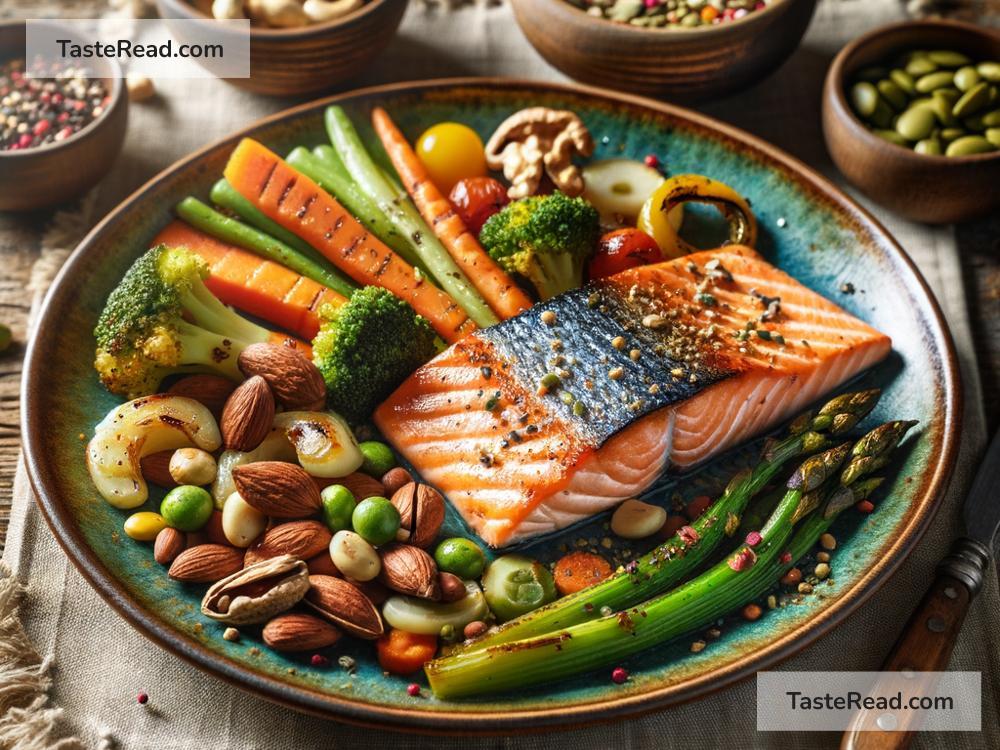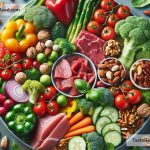How the Paleo Diet Helps With Digestion and Bloating
Have you ever felt uncomfortable bloating or digestion issues after eating some foods? These discomforts are common, and many of us are on a constant lookout for ways to ease these digestive problems. One eating plan, the Paleo diet, has gained attention for its benefits, especially in improving digestion and reducing bloating. But what exactly is the Paleo diet, and how can it help? Let’s break it down into simpler terms.
Understanding the Paleo Diet
The Paleo diet is often called the “caveman diet,” and it’s based on the idea of eating like our ancestors. Think about foods that could be hunted and gathered – meats, fish, nuts, leafy greens, regional veggies, and seeds. It’s all about natural foods that were available during the Paleolithic era. This means no processed foods, dairy, grains, or legumes. The idea behind the diet is not just about losing weight but also improving overall health.
Goodbye to Processed Foods and Hello to Natural Goodness
One of the biggest changes the Paleo diet brings is cutting out processed foods. These are foods that have been altered from their natural state, often to extend their shelf life or make them more convenient. Unfortunately, these foods are often packed with additives and preservatives that can disrupt our digestive system. By returning to a diet filled with natural and unprocessed foods, the Paleo diet helps ensure that what you’re eating is nourishing and less likely to cause digestive discomfort.
The Role of Fiber in Digestion
Fiber is crucial for healthy digestion, and the Paleo diet emphasizes eating plenty of vegetables and fruits, which are good fiber sources. This type of fiber helps keep your digestive system running smoothly by adding bulk to your stool, which aids in moving food through your guts at a steady pace. This can help prevent both constipation and diarrhea, common culprits of bloating.
Bidding Farewell to Bloat-Causing Foods
Bloating is often caused by certain foods that are hard to digest or can cause gas buildup in the stomach. Common bloat culprits include dairy products, legumes (like beans and lentils), and grains – all of which are no-goes on the Paleo diet. By eliminating these foods, many people find that their chronic bloating reduces or even disappears.
Gut Health and the Paleo Diet
A healthy gut is crucial for overall health, and the Paleo diet promotes gut health by encouraging the consumption of whole, unprocessed foods. These foods can help maintain a healthy balance of gut bacteria, essential for digestion, nutrient absorption, and even immune function. Additionally, by cutting out foods that can disrupt this balance (like sugars and processed foods), the Paleo diet helps protect your gut health and prevent digestive issues.
Tips for Success on the Paleo Diet
If you’re interested in trying the Paleo diet to improve your digestion and reduce bloating, here are a few tips to help you get started:
- Start slow: If your current diet is far from Paleo, gradually remove processed foods, dairy, grains, and legumes from your diet.
- Focus on vegetables: Aim to make vegetables a significant part of your meals. They’re not only packed with fiber but also vitamins and minerals essential for health.
- Stay hydrated: Drinking plenty of water is essential for digestion. Aim for at least 8 glasses a day.
- Plan and prepare: Planning your meals in advance can help you stay on track. Look for Paleo-friendly recipes and make sure you have all the ingredients you need.
In Conclusion
The Paleo diet can be a game-changer for those struggling with digestion issues and bloating. By focusing on whole, unprocessed foods, and cutting out common irritants, many find relief and improved digestive health. Remember, everyone’s body is different, so while the Paleo diet can be beneficial, it’s important to listen to your body and make adjustments as needed. Happy eating, and here’s to a happier digestive system!


